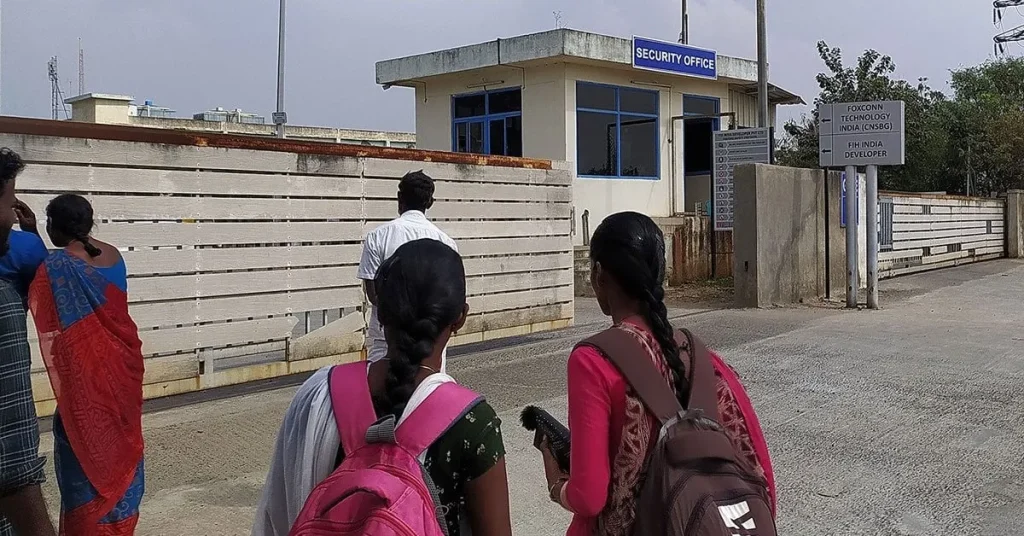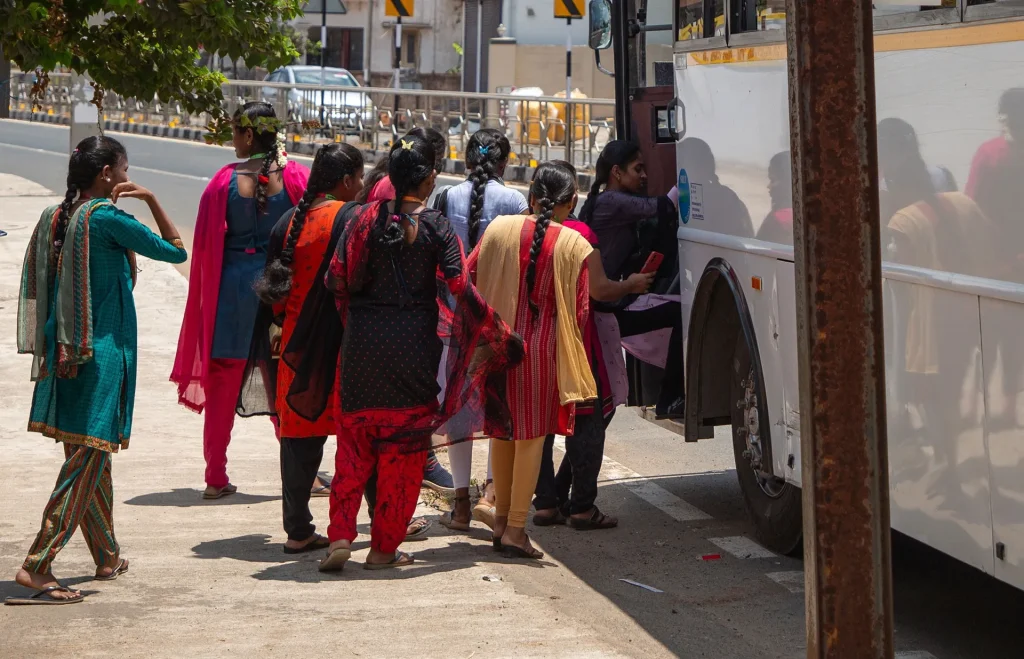A Reuters investigation has uncovered systematic exclusion of married women from employment at Foxconn’s primary iPhone assembly plant in India. This revelation casts a shadow over one of the most significant foreign investments in the country and poses a challenge to the inclusive policies of both Apple and Foxconn.

The Incident
In March 2023, sisters Parvathi and Janaki, both in their 20s, arrived at the Foxconn facility in Sriperumbudur, near Chennai, for job interviews. The opportunity was advertised on WhatsApp, sparking their interest. However, upon arrival, they were turned away by a security officer who questioned them: “Are you married?”
“We didn’t get the jobs as we both are married,” Parvathi shared in an interview from her village. Even the auto-rickshaw driver, who transported them from the bus stand to the Foxconn facility, warned them about the company’s preference for unmarried women. Despite this, they decided to try their luck.
Investigative Findings
Reuters’ extensive investigation into Foxconn’s hiring practices, including over 20 visits to the plant and discussions with dozens of jobseekers and employees, has revealed a discriminatory policy against hiring married women. This practice is justified by the company due to “cultural issues” and the increased “family responsibilities” that married women are believed to carry.

S. Paul, a former HR executive at Foxconn India who left the company in August 2023, confirmed that executives conveyed these hiring preferences verbally to Indian recruitment agencies tasked with finding and employing candidates. Paul cited various reasons behind this discrimination, including potential issues such as pregnancy and higher absenteeism among married women.
Foxconn’s policy against hiring married women is not absolute. During peak production periods, when labor shortages occur, the company sometimes relaxes this restriction. Reuters found instances where hiring agencies helped women conceal their marital status to secure employment.
While Apple and Foxconn have codes of conduct that explicitly prohibit discrimination based on marital status, Reuters’ findings indicate that such practices persisted in 2023 and 2024. Both companies acknowledged lapses in hiring practices in 2022 and claimed to have addressed these issues through monthly audits. However, neither addressed the specific discriminatory practices that continued in the following years.
Corporate Responses

Apple emphasized its commitment to the highest supply chain standards and noted that Foxconn employs some married women in India. In response to the investigation, Apple stated, “When concerns about hiring practices were first raised in 2022, we immediately took action and worked with our supplier to conduct monthly audits to identify issues and ensure that our high standards are upheld.”
Foxconn, in a statement, vigorously denied any allegations of employment discrimination based on marital status or other factors. The company mentioned it had enhanced its management process for hiring agencies in 2022 and identified four agencies whose job ads did not meet their standards, leading to the removal of over 20 job ads. Foxconn also reported that almost 25% of the women hired in the latest recruitment drive were married, without
This controversy highlights the difficulties multinational companies face in maintaining global standards of inclusion while operating in culturally diverse regions. Foxconn’s discriminatory hiring practices also undermine efforts by the Indian government, led by Prime Minister Narendra Modi, to increase female participation in the workforce and advance the country’s economic status.

Prime Minister Modi’s administration has aimed to overhaul labor laws to make hiring and firing processes easier and to prevent gender-based discrimination. Yet, these measures have not specifically addressed discrimination based on marital status.
For many Indian women, particularly in economically disadvantaged regions, jobs at Foxconn represent a crucial opportunity to escape poverty. These positions provide food, accommodation, and a monthly salary of around $200, aligning with India’s per capita GDP.
The exclusion of married women from such opportunities not only hinders individual economic progress but also poses a challenge to Modi’s vision of empowering women and integrating them into the workforce. As India seeks to establish itself as a manufacturing hub and attract foreign investments, addressing such discriminatory practices becomes imperative.
